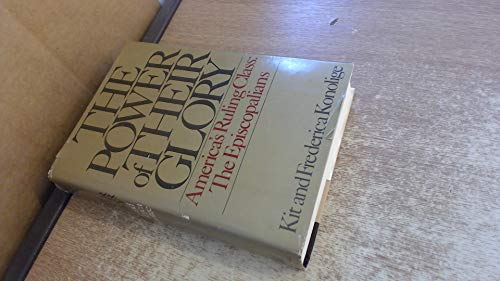Customer Services
Copyright © 2025 Desertcart Holdings Limited


Full description not available
P**2
“Epistocratic” has cultural norms
The Konolige’s evoke the Episcopalian “aroma” that I remember as youngster of the 50’s. Some elements in the book are horrifyingly uninformed (chapter 23) as if the authors never stepped out of their social milieu to see if they knew what they were talking about, while other elements were edifying and even charming (e.g. the yachting story on page 228 where “that man” (FDR) engages with the offended and offending Grace Vanderbilt and creates a constructive detente, thanks to FDR’s good-humored reply and their shared respect for gentlemanly behavior.) The book includes numerous vignettes and details that demonstrate the best and worst of Epistocratic cultural norms.
J**S
Useful primary source
Most of the discussions in this book are had more cogently in the early chapters of Who Killed Society? by Cleveland Amory, whom the authors clearly admire. However, this book remains useful for several reasons.First, it attempts to characterize the religious situation of the WASP ruling class, although I finished reading the book only more perplexed than I did when I began. Relevant quote: "Hence the seeming paradox: a very formal, elaborate, orthodox religion with an extremely worldly, wealthy, and rationalistic congregation. It is a religion for sophisticates--for people who can 'believe' a religious philosophy of life without letting it interfere in their workaday world." (33)Second, it explains how the Episcopalian church and the old money prep schools weathered the social changes of the 1960s, which had not yet occurred when Amory wrote his book. The church, robbed of its snobbish character, fell in line with the Protestant mainline; the prep schools either adapted to the new post-WASP status quo, or withered on the vine, like Groton. (Groton, of course, was not allowed to vanish entirely; it adapted after this book was written. Its current headmaster? A certain Mr. Temba Maqubela.)Finally, as a 1978 update it shows a shift in American concerns, away from the formation of an exclusive elite, and towards a new elite concerned with inclusion of politically like-minded fellows, precisely as Amory predicted in 1960.
B**N
Phenomenal Read!
I don't bother writing many reviews but this is an excellent read. Any history buff with an interest in turn-of-the-century deal-makers will enjoy this book. As one of "God's Frozen People" (an Episcopalian) I was fascinated with the importance of the Episcocratic Ideology.If you can get your hands on a copy - grab it!
B**1
There are many better books on the subject
Book was as described (bought it used) but it is very poorly written and uninteresting. There are many better books on the subject. Authors were too cutesy by half and looked at WASPS like they were movie stars.
W**R
Episcocrats and American growth and influence
For me this fascinating read was more about movers and shakers who happen to be Episcocrats rather than Episcopalians who happen to be powerful and influential. If you like American history and are curious about the people that helped forge America's standing in today's world give this a read. It's angle is different and enlightening.I read this book about 30 years ago and it still resonates as a volume that has stayed with me. It would be interesting to reread with 30 years additional perspective.
N**Y
offensive and dubious
I had this forced on me by a fanatic proselytizer for another religious organization. I found it appalling and of rather dubious accuracy. Offensive. Anyone still claiming the Episcopalians are "God's Frozen People" knows little of the church's history, esp the role the Church of England and some American parishes played in the Social Justice movements, starting in the 19th c factory towns, or the actions of the NY Diocese in fighting the conditions of the poor in NYC. Individual members of any organization can use their affiliations for good or ill, but, institutionally, the Episcopal church is relentless in the matter of self-examination and trying to live up to the mandates of the Gospels. That this sect is traditionally associated with those who have had access to a good education has more to do with the fact that we do not require members to "check your brain at the door" and most members do a good deal of reading, studying and thinking about what they believe. It takes some intelligence and education to do so, and I think this is to be commended. Our churches are comprised of people from a hugely-diverse background, esp latterly, but all are characterized by a mindful approach to belief.
Trustpilot
2 weeks ago
2 days ago